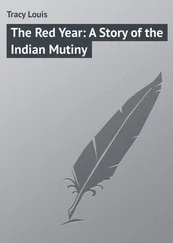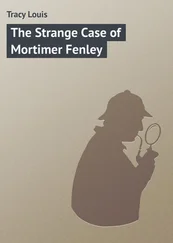Louis Tracy - His Unknown Wife
Здесь есть возможность читать онлайн «Louis Tracy - His Unknown Wife» — ознакомительный отрывок электронной книги совершенно бесплатно, а после прочтения отрывка купить полную версию. В некоторых случаях можно слушать аудио, скачать через торрент в формате fb2 и присутствует краткое содержание. Жанр: foreign_prose, на английском языке. Описание произведения, (предисловие) а так же отзывы посетителей доступны на портале библиотеки ЛибКат.
- Название:His Unknown Wife
- Автор:
- Жанр:
- Год:неизвестен
- ISBN:нет данных
- Рейтинг книги:5 / 5. Голосов: 1
-
Избранное:Добавить в избранное
- Отзывы:
-
Ваша оценка:
- 100
- 1
- 2
- 3
- 4
- 5
His Unknown Wife: краткое содержание, описание и аннотация
Предлагаем к чтению аннотацию, описание, краткое содержание или предисловие (зависит от того, что написал сам автор книги «His Unknown Wife»). Если вы не нашли необходимую информацию о книге — напишите в комментариях, мы постараемся отыскать её.
His Unknown Wife — читать онлайн ознакомительный отрывок
Ниже представлен текст книги, разбитый по страницам. Система сохранения места последней прочитанной страницы, позволяет с удобством читать онлайн бесплатно книгу «His Unknown Wife», без необходимости каждый раз заново искать на чём Вы остановились. Поставьте закладку, и сможете в любой момент перейти на страницу, на которой закончили чтение.
Интервал:
Закладка:
“Madeleine,” the woman he had married, was his fellow-passenger! He would surely see her many times during the voyage to Buenos Ayres! He would hear her voice, which he could not fail to recognize.
She, on her part, would probably identify him at the first glance. How would she handle an extraordinary situation? Would she claim him as her husband, repudiate him scornfully, or utterly ignore him? He could not even guess.
There was no telling what a woman would do who had elected to marry a man whom she had never met, whose very name, in all likelihood, she had never heard, merely because he happened to be a prisoner condemned to speedy death.
Yet she could not be a particularly cold-blooded person. She had wept for him, had whispered her heartfelt grief; had promised to pray for and think of him always. Even the man with the high-pitched voice of a hypochondriac – presumably, from the manner of his address, her father – had hinted that her suffering had already passed the bounds set for one who, to serve her own ends, had gone through that amazing ceremony.
Maseden did not actually marshal his thoughts thus clearly. If compelled to bend his wits to the task, he might have spoken or written in such wise. But an active brain has its own haphazard methods of weighing a new and distracting problem; it will ask and answer a dozen startling questions simultaneously.
In the midst of Maseden’s strange and formless imaginings the ship’s course was changed a couple of points to the southward, and the Southern Cross was shut out of sight by the forecastle head. Then, and not until then, did the coincidence of the vessel’s name with that of the constellation occur to his bemused wits.
He laughed cheerfully.
“By gad!” he said, “all the signs of the zodiac must have clustered about my horoscope on this 15th of January. When I get ashore I must find an astrologer and ask him to expound.”
The sound of his own voice brought a belated warning to Maseden of the folly he had committed in speaking aloud.
There was no other occupant of the fore deck at the moment. A look-out man in the bows could not possibly have overheard, because of the whistling of the breeze created by the ship’s momentum and the plash of the curved waves set up by the cut-water, and it was highly improbable that words uttered in a conversational tone would have reached the bridge.
But behind him rose the three decks of the superstructure, and there might be eavesdroppers on the promenade deck or in one of the two dark gangways running aft.
He glanced over his shoulder to right and left. Apparently he had escaped this time. No matter what developments took place in the near future, he was by no means anxious as yet to reveal his nationality. Each hour brought home, more and more forcibly, the misfortune of the chance which left him no alternative but the shooting of Suarez that morning.
The act was absolutely essential to his own safety, but it put him clearly out of court. At any rate, the authorities of no South American state would listen to a recital of his earlier wrongs. If, as was highly probable, a sensational account of the attempted assassination of the new president had been tacked on to the telegrams announcing the coup d’état in San Juan, and he, Maseden, were painted as a desperado of mark, it might even be feared that the settled and respectable Argentine Republic would arrest him and endeavor to send him back to San Juan for trial.
Of course, the United States Consul in Buenos Ayres would have something to say about it, but there was a very real danger of consular efforts being overruled. No matter how distasteful the rôle, Philip Alexander Maseden must continue to masquerade as Ramon Aliones, vaquero , until he could leave the ship and assume another alias.
It was soon borne in on him how narrow was the margin which still separated him from disaster. He had gone to his berth, an unsavory hutch next to a larger cabin tenanted by deck-hands, when the door was thrust wide (he had left it half open while undressing, there being no electric switch within) and a lamp flashed in his eyes.
A short, stockily-built man, whom Maseden rightly took for the captain, stood there, accompanied by another man, seemingly a Spanish steward.
“Now, then,” came the gruff question, “what’s this I hear about your speaking English to yourself? Who are you? What’s your name?”
Luckily, Maseden was so surprised that he did not answer. The swarthy steward, a thin, lantern-jawed person, grinned. Maseden saw that the man was wearing canvas shoes with india-rubber soles, and guessed the truth instantly.
His nerve had been tested many times that day; nor did it fail him now. Gazing blankly at the captain, he said, in Spanish, that he did not understand.
“Tell him, Alfonso, that you heard him speaking English a few minutes since… Hi, you! Stop that! No smoking in your berth.”
Maseden was rolling a cigarette in true Spanish style. The captain was obviously suspicious, so the situation called for a touch of stage artistry.
Alfonso translated, pricking his ears for Maseden’s reply. But he hailed from the east coast, whereas Maseden used the patois of San Juan.
“You made a natural mistake, señor,” said the American easily. “I was talking to the stars, a habit of mine when alone on the pampas , and their names would sound somewhat like the words of a barbarous tongue.”
“And a foolish habit, too!” commented the captain when he heard the explanation. “Do you know any of ’em?” and he glanced up at the strip of sky visible from where he stood.
The smiling vaquero stepped out on to the open deck. Oh, yes, all the chief stars were old friends of his. He pointed to the “Sea-serpent,” the “Crow,” and the “Great Dog,” giving the Spanish equivalents.
The steward, of course, densely ignorant in such things, and already half convinced that he had blundered, was only anxious now to avoid being rated by the captain for having gone to him with a cock-and-bull story. Somehow, Maseden sensed this fact, and made smooth the path.
“They are strange names,” he said with a laugh, “but we of the plains often have to find the way on land as a sailor on the sea.”
“Has he any papers?” demanded the captain, apparently satisfied that the passenger was really acquainted with the chief star-groups.
Maseden produced that thrice-fortunate duplicate of the receipt for cattle brought from the San Luis ranch to Cartagena by Ramon Aliones that very day. The captain examined it, and turned wrathfully on the steward.
“Be off to the devil!” he growled. “Find some other job than bothering me with your fool’s tales!”
When Alfonso had vanished, he added, seemingly as an afterthought:
“If I was a vaquero with a dirty face, I wouldn’t worry about clean fingernails or wear silk underclothing, and I’d do my star-gazing in dumb show!”
With that he, too, strode away. Undoubtedly, the captain of the Southern Cross was no fool.
Five minutes later the silk vest and pants which Maseden had not troubled to change while donning the gay attire of old Lopez’s nephew, went into the Pacific through the small port-hole which redeemed the cabin’s otherwise stuffy atmosphere. Happily the bunk, though crude, was clean, and long enough to hold a tall man.
Maseden fancied he would lie awake for hours. In reality, he was dead tired, and slept the sleep of sheer exhaustion until wakened by a loud-voiced intimation that all crimson-hued Dagoes must rouse themselves if they didn’t want to be stirred up by a hose-pipe.
Now, if there was one thing more than another that Maseden liked when on board ship, it was a cold salt-water bath. But he dared neither take a bath nor wash his face. Personal cleanliness is not a marked characteristic of South American cowboys. That he should display close-cropped hair instead of an abundance of oiled and curly tresses was a fact singular enough in itself, without inviting attention by the use of soap and water.
Читать дальшеИнтервал:
Закладка:
Похожие книги на «His Unknown Wife»
Представляем Вашему вниманию похожие книги на «His Unknown Wife» списком для выбора. Мы отобрали схожую по названию и смыслу литературу в надежде предоставить читателям больше вариантов отыскать новые, интересные, ещё непрочитанные произведения.
Обсуждение, отзывы о книге «His Unknown Wife» и просто собственные мнения читателей. Оставьте ваши комментарии, напишите, что Вы думаете о произведении, его смысле или главных героях. Укажите что конкретно понравилось, а что нет, и почему Вы так считаете.












